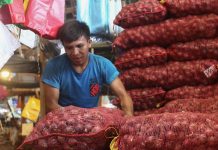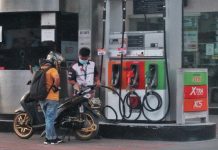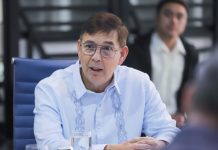The Department of Finance batted for the congressional approval of the implementation of of the proposed restructuring of the excise tax on automobiles to help decongest traffic in Metro Manila and other highly congested urban centers such as Cebu and Davao.
This tax hike would be implemented in 2018, according to Finance Secretary Carlos Dominguez III.
“If this thing is going to pass, it will probably be effective in 2018. So we have a year to fix it. So there, that’s the reason. By the way, we are not imposing this merely to make life hard for people. We are imposing this to finance [our] infrastructure needs,” said Dominguez.
He explained that through the DOF timetable, the Duterte administration would have enough time to address the problems of the country’s rail transit system. Aside from that, this would also be the time to inform and encourage the public to invest in alternative modes of city travel by using public transport rather than ride cars.
“So we are going to make public transport more available. We have to discourage new cars because just look at the traffic, It’s not moving,” he added.
Dominguez stressed that a highly progressive tax on automobiles will discourage the purchase of new cars, which, in turn, will help stop traffic congestion from getting worse, and reduce air pollution and the carbon footprint.
“What’s the point of buying a new car and not moving in the streets? That point of the matter is we want to direct the people to go to public transport, and we are making big investments in public transport,
particularly the bus rapid transit system, and we’re fixing up the trains, whose maintenance has been neglected over the years,” Dominguez said.
Under the DOF proposal, the tax for entry-level cars priced P600,000 and below would go up from 2 percent to 5 percent, while luxury vehicles priced over P2.1 million would be taxed 60 percent of the manufacture/import price, up from the current tax of P512,000 plus 60 percent in excess of 2.1 million.







